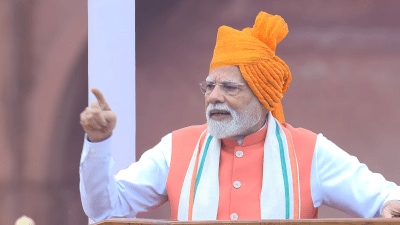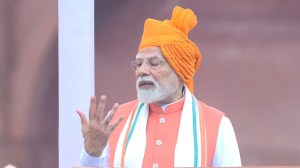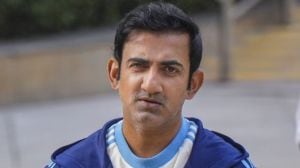Stay updated with the latest - Click here to follow us on Instagram
Farewell to ‘Theatrewala’ Mangal Dhillon
To Chandigarh, to Punjab, Dhillon’s passing is a personal loss. It was here he found his calling here in the corridors and stage of the Indian Department of Theatre, Panjab University he laid roots to his career in the theatre arts.
 Mangal Dhillon was a popular name in the film and television industry. (Photo: Mangal Dhillon/Facebook)
Mangal Dhillon was a popular name in the film and television industry. (Photo: Mangal Dhillon/Facebook) As inevitable as it is, death always comes as a rude shock. Sunday, June 11, 2023, as the world remembers Sidhu Moosewala on his birth anniversary, it will also recall another famous personality, actor, director, writer, producer Mangal Dhillon. Dhillon lost his battle to cancer and breathed his last today in Ludhiana.
To Chandigarh, to Punjab, Dhillon’s passing is a personal loss. It was here he found his calling in the corridors of the Indian Department of Theatre, Panjab University. It was on the department stage that he started his career in the theatre arts. It was here that he found his voice, loud and clear, a baritone not easily forgotten.
Here, that he learnt the finer nuances and lessons of life, learnt the craft, honed his ‘English’ language, realised his potential, performing street plays, walked the gullies and roads, wishing all his life they remain the same, clean, green, away from the madding synthetic world of big cities.
His experiment in theatre, his play, ‘Theatrewala Urf Pagal Hai’, still resonates at Tagore Theatre. “So many of our artistes have moved to Mumbai, but the only two people I can count who remained rooted and true to their land were Balraj Sahni and Mangal Dhillon. I am deeply saddened by his demise…such a wonderful, handsome, distinguished man, and what a voice. I was impressed with his acting skills, and his unparalleled commitment to theatre, how he conceived, wrote, acted and produced his plays. One play that sticks out in my memory is Sandhya Chaya staged at the Indira Holiday Home 30-35 years back. The play dealt with the loneliness of an old couple whose children have moved overseas…the pain and angst he brought out was piercing. He will be missed,” rues Sahitya Akademi Award winning Punjabi playwright, Atamjit Singh.
Although his birth place was Wander Jattana, a village near Kotkapura in Fardikot district, this ‘village boy who barely scraped through his academics’, completed his graduation from Mukstar college.
His father, a farmer, who owned a sizeable landholding near Lakhimpur Kheri in Uttar Pradesh, wanted him to choose a career in police or law. But an uninspired Dhillon had other plans. A radio announcer or a teacher, he shared, till he fell in love with theatre here and even formed his group called Natyalya in 1982.
In one of his interviews, he had shared how he had a fallout with his father, and came to Chandigarh, penniless, and it’s the department that made him an actor. It’s this department where he earned his gold medal, and was part of thespian and Padma Shri awardee Neelam Mansingh Chowdhry’s first production, ‘Matiya Burj’, based on Japanese film, Rashomon.
“Mangal did the lights for my production, the first I attempted after I moved to Chandigarh. It was 1984, and there he was, passionately invested in the art to the point that it made him volatile too. He was engaged in every aspect of the work, and we did another play together, Kissa Heer te Ranjhe Da. He wrote some scenes, and I realised how talented he was…acting, writing, production. He was rooted, especially to the language. He understood characterisation, language, emotions. He moved to Mumbai, worked there too, and seemed committed, to his family, work, but I feel a man of his brilliance never made it big, never got the due his talent deserved, which is sad,” recalls Neelam, as she reminisces about her long association with Dhillon.
It was the late 1980s. Television in India was producing some of the best, groundbreaking serials, and Dhillon was part of this golden content rich era of the Indian telly. As Lubhaya Ram in Buniyaad, Raja Thakur in Yug, Sumer Rajvansh in Junoon, Col Hoshiar Singh in Param Vir Chakra, and Maulana Azad in Maulana Azad, he stood out. He was equally impressive in his roles in Ghutan, Katha Sagar, Khoon Bhari Maang and Train to Pakistan.
Over the years, Dhillon, who would flit between Punjab and England, turned to spirituality, philosophy, and Gurbani. He formed a production company and made a historical film, Khalsa. He continued to make films and documentaries centered around Gurbani, holy religious practises, healing powers, drug abuse, always encouraging people, especially youngsters to choose the right path, and turn to spirituality. Your universe lies within you, he said. Rest in peace, Mangal Dhillon.







